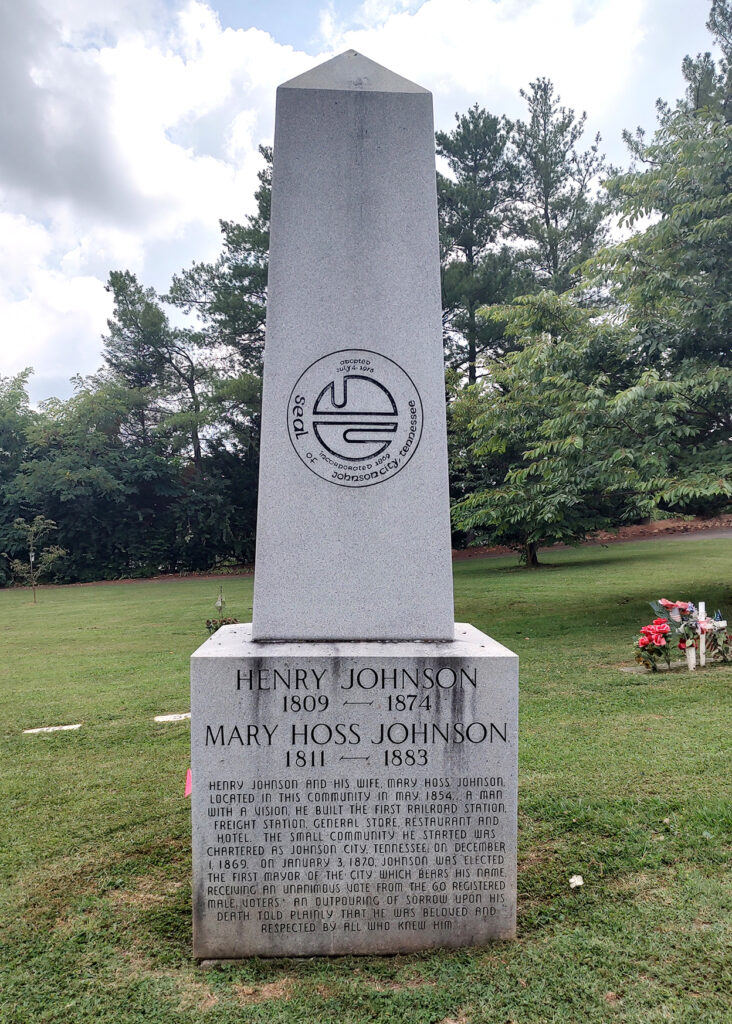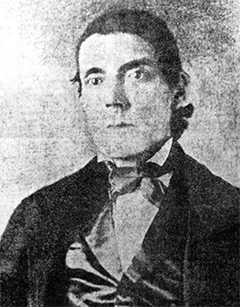Editor’s Note: This is the first in a series of stories on Johnson City, Washington County and Jonesborough history by local historian and journalist Robert Sorrell.
By Robert Sorrell
Early Tennessee pioneer Henry Johnson would be proud of the city that bears his name, according to one of his descendants.
“I think his goal has been met by the people of Johnson City,” said Brooke Landers-Ledford, the great-great-great granddaughter of the city’s founder. “I believe he envisioned a town that would continue to grow with the times for the better.”
Johnson, born in 1809 in Guilford County, North Carolina, settled in what is now Johnson City in the mid-1850s with his wife Mary Hoss Johnson. There, he built a combination home and business along the old stage route and the recently built railroad that connected Bristol, Knoxville and Chattanooga.
Johnson is believed to have traveled to Johnson City via the old stage route. He settled east of Jonesborough, which was established about a half-century prior to his arrival in the area. Jonesborough, founded in 1779, is Tennessee’s oldest town.
The man’s business, which included a store, restaurant, and hotel, served both travelers and local settlers, according to articles in the Johnson City Chronicle. He is reported to have welcomed travelers at any time, and people without means to pay for lodging were welcome just the same, an article states.
Johnson consistently expanded his operations within his comparatively small tract of land he purchased from another Johnson City founder, Tipton Jobe, and built the first railroad depot with his own money, the Chronicle reported. He became the depot agent, freight agent, ticket agent, express agent, and anything else needed to operate the depot.
“I learned he was a strict businessman who loved sitting in a rocker on the porch playing checkers,” Landers-Ledford said. “He was very educated for the time as he would need to be able to establish all he was able to do in such a short time.”
In addition to operating a general store, where he sold everything from mouse traps to hardware to eggs, Johnson also served as the local postmaster. If someone was late retrieving their mail, Johnson would berate them for not being on time and asked them to wait until he could finish his game of checkers.
There were just a few homes in the area when Johnson established his home and shop. After he built the depot, the community became known as Johnson’s Depot.
In a heated political race for Congress, in which Johnson supported the opponent of Landon C. Haynes, the friends of Haynes had the name changed briefly to Haynesville, the Chronicle reported.
The city became officially chartered in 1869 and was known as Johnson City, after Henry Johnson. In 1870, the residents unanimously elected Johnson its first mayor.
Johnson died on Feb. 25, 1874, at the age of 64, according to his grave marker at Oak Hill Cemetery in Johnson City. He is buried with his wife and other family members.
“An outpouring of sorrow upon his death told plainly that he was beloved and respected by all who knew him,” his marker states.
Since his death, Johnson City has consistently grown and prospered, which is something Landers-Ledford said Johnson envisioned.
“I believe ETSU [East Tennessee State University] and the VA [Veterans Affairs] would be at the top of his list of great accomplishments for Johnson City as they both continue to educate and grow with the ever-changing times,” she said.
Today, Johnson City is home to more than 72,500 residents, according to the U.S. Census Bureau.
His great-great-great granddaughter said she continues to learn more about Johnson and his legacy. She noted her daughter is the first grandchild of his that graduated from Science Hill High School this past spring.





